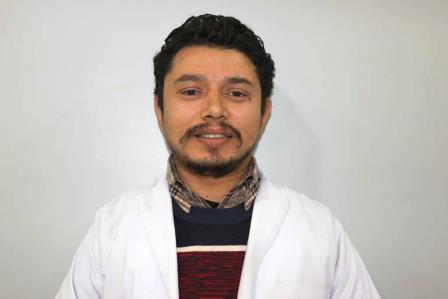 |
Join our Vision Club in Facebook
I vividly remember the first few months following my graduation in
Bachelor of Optometry. Those four undergraduate years had become the primary
structure of my daily life, giving me a sense of certainty. Once that structure
crumbled, I faced multiple choices regarding my further studies and
professional career. It required me quite some time to realize that I wanted to
pursue a Ph.D. in Vision Science. I found the whole process of applying and
getting into a Ph.D. program quite overwhelming. And here, I am sharing some of
my experiences of my journey thus far from that point. I hope this will be
helpful for those who are thinking of pursuing a Ph.D. in the US.
Before you start your application process, I would suggest looking
for the universities or the professors with whom your research interests align.
Visit each university website and look at the areas of vision science research
they are working on and try to figure out what fascinates you. You don't have
to come up with some research topics for your Ph.D. right then. But having a
goal in mind towards which you want to work keeps you motivated for a long and
sometimes exhausting process of applying to a graduate school. Now that you
have your prospective schools in mind, the next step is to prepare your application.
You can always visit the universities' websites for their application
requirements, but here I want to briefly talk and offer my personal opinion on
some of the factors. Besides a minimal prerequisite of a bachelor's degree in
the related field and a cumulative grade point average (GPA) equivalent of 3.0
on a 4.0 scale, one of the other requirements for your application in most US
universities is the Graduate Record Examinations (GRE). It tests your overall
verbal and quantitative reasoning skills, as well as your analytical writing
skills. You may have to put more effort into this part to make your application
better, especially if you do not have a lot of research experience. It might
seem like a daunting task to prepare for the exam and get a perfect score, but
a proper study plan and good time management help to achieve that goal. One
thing I found helpful was a lot of mock tests that I gave throughout the
preparation phase before I appeared for the real exam. Reviewing the results of
those mock tests and working on my weak points improved my final score.
The other factor which universities look for in their prospective
graduate students is their prior research experiences. For this, I strongly
encourage you to work proactively in your undergraduate research projects.
Gather the knowledge of statistics and research methodology as much as you can.
Grab every opportunity to present your work at national and international
conferences. Publishing your research work is always an advantage. I do not mean
you must check all items of the list, but you should be able to present
yourself as a candidate with a genuine interest in research, not only in words
but through your prior works and experiences. Last but not least are letters of
recommendation and your statement of purpose. The way your research advisors
describe you as a student and a researcher plays a vital role in your
application. In your statement of purpose, talk about your research works and
relevant experiences you gained in the undergraduate years that can help you in
graduate school. Let the admission committee know why you are a good fit for
their program, how your research interests are consistent with the research
areas of the particular school or its professors. Overall, you should be able
to establish yourself as a passionate student who has the skills and focus
required to pursue a Ph.D.
Finally, getting accepted to the school of your dreams following a
lengthy application process opens a new set of excitements and challenges for
you. You have to be determined enough to spend another five years of your life
as a student researcher. Like in any other endeavor, things may not always turn
out the way you want. Instead of worrying about the failures, take every
opportunity to learn from them, and enjoy the journey to your Ph.D.
Sabina Poudel
Ph.D. Student
State University of New York, College of Optometry
Email: [email protected]
If you want to share your story, please pitch us at: [email protected] or [email protected]. We would be glad to feature your story and let them spread to the wider audience.
Join our Vision Club in Facebook
Click below to read the inspiring stories of:
Prativa Devkota, lady optometrist who travels out of country for a mission
Rajendra Gyawali, one of the first Scientia Scholar optometrists from Nepal
Dr. Sanjay Marasini, who has a major contribution in finding treatment of ulcers through UV light.
Dr. Nabin Raj Joshi, who is involved in the optical industrial researches in the US
Dr. Sedinam Forfoe, Optometrist from Ghana, who shares his experience while he was in Nepal
Dr. Chundak Tenzing, a significant persona in global eye care
Suresh Awasthi, an optometrist who blends himself in to the society




0 Comments